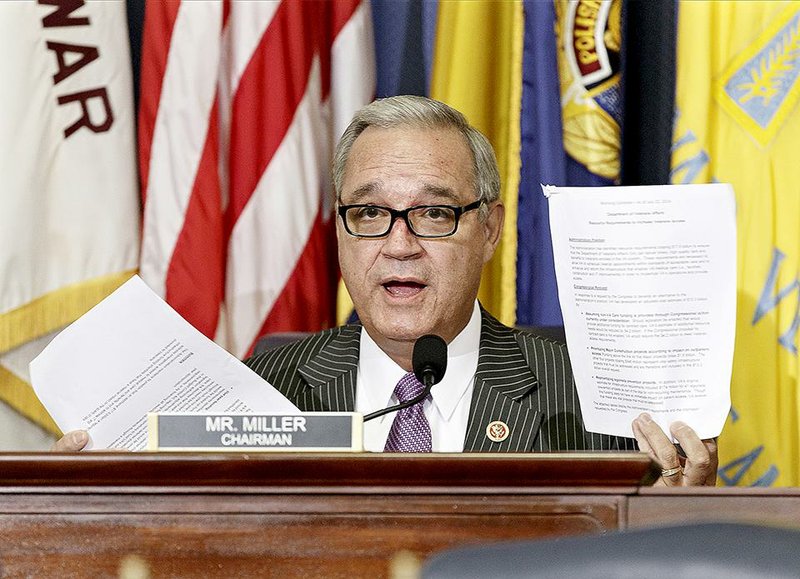WASHINGTON -- The House on Wednesday approved a bill making it easier to fire or demote hundreds of thousands of employees at the Department of Veterans Affairs, as lawmakers expressed continued frustration at the slow pace of change at the beleaguered agency.
The bill's sponsor, Rep. Jeff Miller, R-Fla., said the VA has not moved quickly enough to respond to a scandal over long waits for veterans seeking medical care and falsified records by VA employees to cover up the delays.
"We have seen how the presence of poor performers and misconduct ranging from unethical practices to outright criminal behavior can spread like a cancer through a workforce," said Miller, chairman of the House Veterans Affairs Committee.
The bill was approved, 256-170. Arkansas' four representatives, all Republicans, were joined by 16 Democrats and 236 fellow Republicans to support the bill. Only one Republican, Rep. Patrick Meehan of Pennsylvania, opposed it.
The White House has threatened to veto the measure, saying it would remove important due process rights and create a two-tier system in which VA employees would be treated differently than other federal workers.
But Miller said deep-seated problems at the VA warrant special treatment.
"There are some rotten people that work in the department that need to be fired, not protected," he said.
Miller's bill builds on a law adopted last year that made it easier to fire senior VA executives. The provision was a key element of a VA overhaul approved in response to the wait-time scandal.
The law also made it easier for veterans to get government-paid care from local doctors and added billions of dollars to the agency's budget to hire thousands of doctors, nurses and other health care professionals.
Miller, who pushed for the earlier overhaul, said more needs to be done to fix the VA, noting that federal civil service rules make it difficult to fire poor-performing employees.
A recent study by the Government Accountability Office found it can take at least six months to more than a year to fire a government employee for cause, a time period Miller said "defies common sense."
Miller's bill would give employees seven days to appeal their removal or demotion, with a 45-day appeal period. If the appeal is not completed within 45 days, the decision on removal or demotion would be final.
"As we have seen time and time again across the country it is nearly impossible to remove that cancer in a reasonable amount of time due to current civil service rules," he said, citing slow action by the VA to address problems in Phoenix, Denver, central Alabama, Philadelphia, Los Angeles and his home state of Florida.
Democrats complained that the bill targets low-ranking employees as scapegoats for problems they did not create.
Democratic Rep. Donna Edwards, whose suburban Maryland district includes thousands of federal workers, denounced the bill as "a last-minute attempt" by Republicans to "terminate, demoralize and unfairly blame federal employees and shrink the federal government until it can't do anything for the American people."
While Republicans talk of accountability, the GOP bill "is nothing more than union busting," Edwards said. "Let's just call it what it is."
The bill now goes to the Senate, where Sen. Marco Rubio, R-Fla., has sponsored a similar measure.
A Section on 07/30/2015

